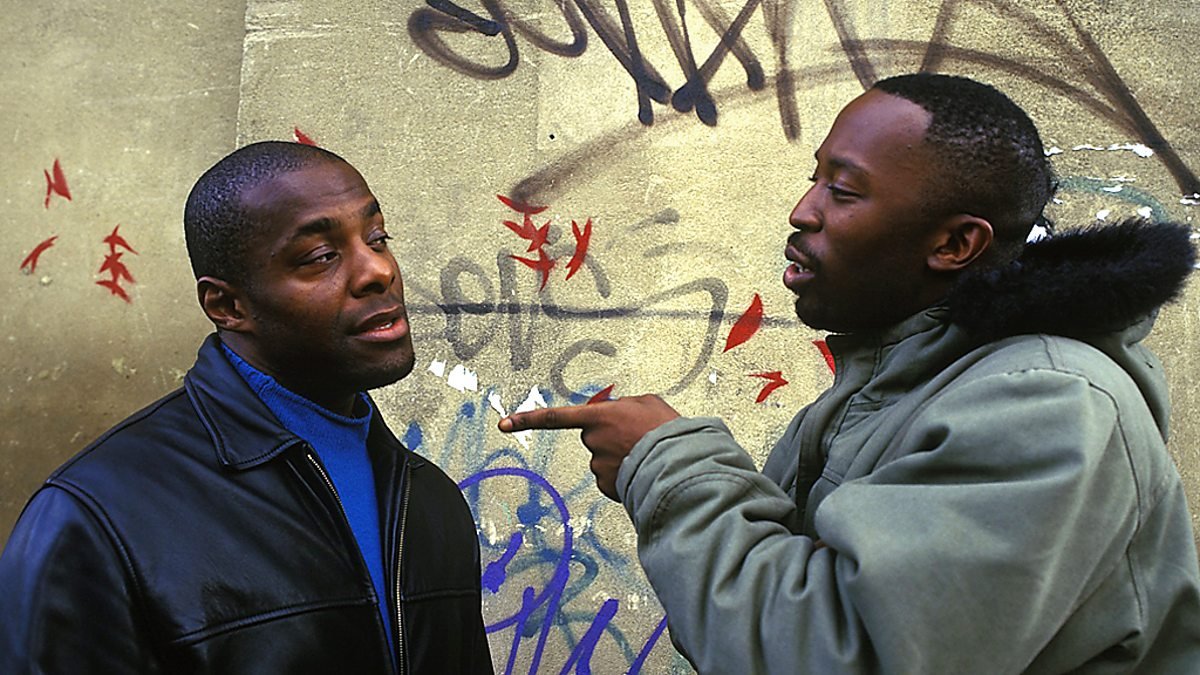Kwame Kwei-Armah's play about the children and grandchildren of the Windrush generation
“There are lots of pressures on black males to live up to stereotypes. I wrote the play as a plea, as an investigation into what kind of character it takes to supersede their circumstance.”
Kwame Kwei-Armah in conversation about his play, Elmina’s Kitchen
Elmina’s Kitchen is not just a good play from Kwame Kwei-Armah, it is an important play because it addresses the issues of black youth sub culture and criminality. Named after Elmina’s Castle, a slave prison on Africa’s Ghanaian coast where African men were held before being shipped to the West Indies or the Americas, Elmina’s Kitchen looks at the inheritance of British black youth of the twenty first century.
These are the grandchildren and great grandchildren of those who came to Britain in the 1950s and 1960s. Professor Stuart Hall’s work on resistance and youth culture, first published at the end of the 1960s, examined identity and links to music and street movements in Britain. He looked at the value gap between those who had grown up in the West Indies, those who had chosen to come to Britain and work in mostly low level jobs in transport and in hospitals, and their children who were born in Britain. These children were alienated, having grown up in a white dominated society, being discriminated against and without the strong roots of Caribbean culture. Today this is the generation which now has grown-up children of their own, who are second or third generation British born.
Recent gang warfare and shootings in London and Birmingham have brought to the nation’s attention the extent of Jamaican “Yardie gangs and the associated gun violence, rape and murder. Kwame writing in the programme gives one very frightening statistic, he says “Two thirds of black boys are leaving school without qualifications. We have more black males in prison than we do in universities. One in four black males under the age of 25 is unemployed.”
Set in a café in Hackney, east London, ex-boxer Deli (Paterson Joseph) is trying to bring up his teenage son, Ashley (Emmanuel Idowu) away from being “a bad man” and the easy materialism and excitement of the gangs as represented by one of his customers, small time gangster Digger (Shaun Parkes). Anatasia (Doña Croll) asks for a job as a waitress/cook but is obviously interested in a relationship with Deli himself. Awaiting the release from prison of Dougie, Deli’s brother and in prison for theft, they hear that Dougie has been murdered. Clifton (George Harris), Dougie and Deli’s estranged father, returns for the funeral and highlights differences between the generations but shows some affinity with his grandson. Ashley is recruited by Digger much to the distress of his father and a tragic outcome awaits.
Kwame has included much humour in his play . Clifton’s line that, “fast and West Indian is a contradiction in terms”, gets loud laughter and applause. I occasionally missed a punch line which was buried in Digger’s Grenadine dialect, but on the written page all is comprehensible. The sense of place is well conveyed, the dangerous streets of Hackney, where the fast food delivery boy gets the cash before he hands over the food. Dougie’s funeral is evocative with its umbrellas, lilies and use of gospel music, “When the Lord Gets Ready, You Gotta Move”.
The characterisation is excellent from Doña Croll’s bookish, highly intelligent Anna who tries to get Deli’s confidence to Oscar James’ nice old chap and café customer. Paterson Joseph’s Deli may slightly lose his accent at points towards the end of the play but he is superb at expressing real emotion and tenderness. Any parent will be able to identify with his predicament as to how to protect his son. When Deli is upset, his displacement activity is to rearrange the café furniture, his body language conveying his turmoil. This performance surely should herald many more major parts for him. George Harris, too, is excellent as gold toothed, cashmere coated, old wide boy, showy Clifton who is less responsible than his son. Shaun Parkes’ Digger is as darkly dangerous as he is unpredictable. Emmanuel Idowu, although very young, has a tall lanky rebelliousness as the kid who wants a bimmer (a BMW) and derides his father’s small business selling plantain burgers.
Bunny Christie’s café set before and after the remodelling is dominated by the photograph of Deli’s mother Elmina. The set is authentic and realistic. There is good use of music so much a part of Caribbean culture. Angus Jackson’s fluid direction allows full use of the Cottesloe space, grouping customers around tables, the café workers behind the counter, allowing both moments of intimacy and larger group scenes. Kwame Kwei-Armah’s play Elmina’s Kitchen is thoroughly involving, has bitter-sweet comedy and is always believable. Highly recommended.
Production Notes
Elmina’s Kitchen
Written by Kwame Kwei-Armah
Directed by Angus Jackson
Cast
Starring:
Paterson Joseph
Shaun Parkes
Emmanuel Idowu
Oscar James
George Harris
Doña Croll
Creatives
Director: Angus Jackson
Designer: Bunny Christie
Lighting Designer: Hartley TA Kemp
Sound Designer: Neil Alexander
Music: Neil McArthur
Information
Running Time: Two hours and five minutes with one interval
Closed at the Cottesloe Theatre on 25th August 2003, then toured the UK. In 2015, the show opened at the Garrick Theatre from April to July.
Theatre:
Cottesloe Theatre
National Theatre
Upper Ground
South Bank
London SE1 9PX
Phone: 020 7452 3000
Website: www.nationaltheatre.org.uk
Rail/Tube: Waterloo
Reviewed by Lizzie Loveridge at the Cottesloe Theatre on 29th May 2003


